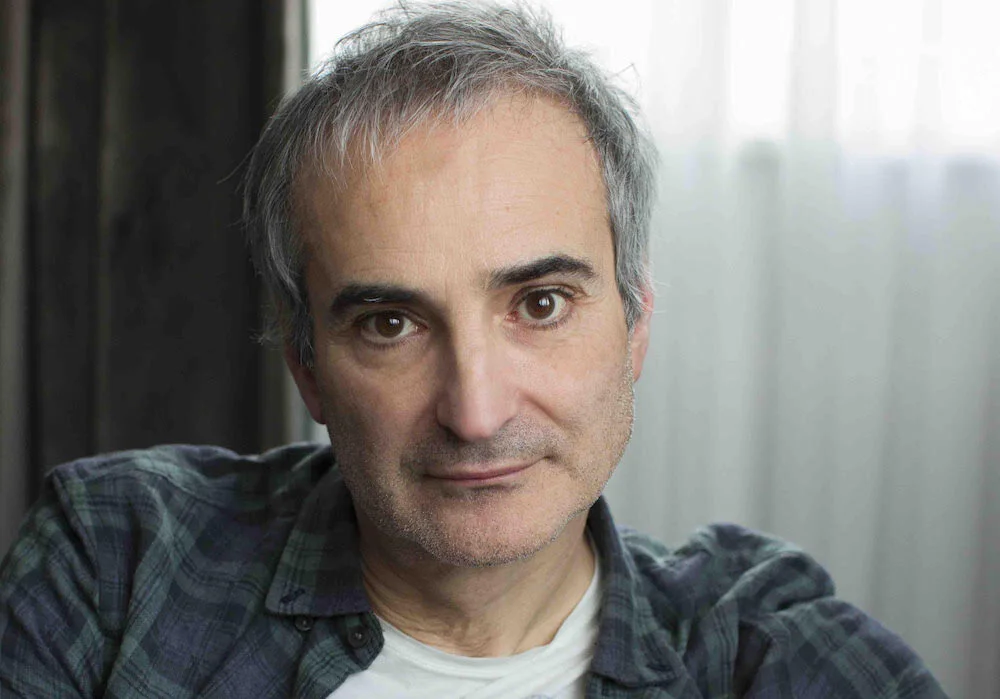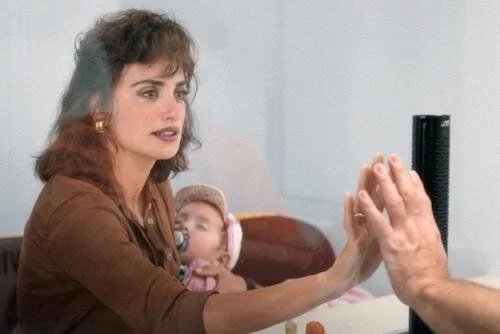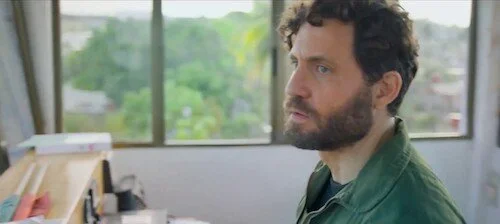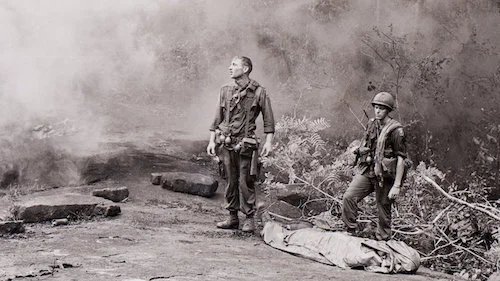Olivier Assayas and Wasp Network: A Film Adaptation for Adapting Times
If you enjoy film festivals and international releases, chances are you are already very familiar with the many works of Olivier Assayas. Back in the ‘90s, his ability to push independent and foreign cinema was an exciting testament of what was yet to come (Cold Water and Irma Vep both made our Best 100 Films of the 1990’s List). In the new millennium, his unique filmography prophesied a new chapter in cinema, including fantastic works like Summer Hours, Demon Lover, and Clean. In the 2010’s, Assayas’ work helped push the current identity of indie filmmaking, with game changers like Clouds of Sils Maria, Personal Shopper, and Non-Fiction. Let’s also not forget his sensational miniseries Carlos.
Olivier Assayas is back with his latest effort Wasp Network: an adaptation of the novel The Last Soldiers of the Cold War by Fernando Morais. This political thriller tells the tale of various members of The Cuban Five: Cuban intelligence officers imprisoned for alleged acts of espionage and the intent to commit murder. He is joined with a superstar cast, including Penélope Cruz, Wagner Moura, Gael García Bernal, Ana de Armas, and Edgar Ramírez (of whom he worked with on Carlos). The film is released on Netflix June 19th, after a theatrical run in various parts of Europe that was cut short due to the COVID-19 pandemic.
In honour of the release of Wasp Network, we sat down with Olivier Assayas to discuss the film. We talk about this intriguing true story, the dedication of the cast to the authenticity of this film, and the importance of embracing shifts within an industry. Check it out!
Wasp Network is released on Netflix June 19th. You can be taken to the film’s page on Netflix here. The trailer for Wasp Network can be watched below.
Films Fatale: I ask this first question, considering that Wasp Network is a Netflix release. Do you think streaming services are beneficial for the art films that have been pushed out of theatres by franchises and blockbusters?
Olivier Assayas: I have never made those kinds of movies. I have always made indie, European movies that were maybe slightly bigger than your usual indie European films. I’ve been mostly dependant on some sort of arthouse circuits. That arthouse circuit has been alive — in a way or another — all over the world. My movies function in a smaller form. My movies are shown all over the world. But in a lot of countries, they’re never opening in multiplexes. They open in multiplexes in territories, obviously like France, and a few [other] major territories. Otherwise, I think streaming services — especially in the context we are in right now — are a blessing. Obviously, I will have two different points of view. One point of view in general: concerning the future of movies on screen (which I care about a lot, and I’m extremely concerned that people keep enjoying the very special experience of watching a movie in a full house with a big screen).
At the same time, this system right now as we’re speaking is not functional. Not because times have changed or the audience has changed, and not because of Hollywood this or Hollywood that. Because people simply will not go to the theatres. In the specific case of my film Wasp Network, I’m just immensely grateful to Netflix, because they are showing my film to a huge audience in a context where people don’t go to the movies. I would not have function without that platform. This movie would have had much less of a career, obviously, because of the COVID crisis.
FF: It’s crazy to think, because Wasp Network was shown at last year’s Toronto International Film Festival. A few months later, here we are with no public events of any sort. For a filmmaker like you, this is probably surreal.
OA: Yes. You know, the thing is I feel I’ve been extremely lucky in a certain way with Wasp Network, because, in terms of the few territories that had the theatrical openings, obviously the most important was France, because we had a lot of financing from France. The business was killed at the end of last year by the riot, because people were rioting against the transformation of the pension system [writer’s note: From December 2019 to February 2020, the French pension reform strike took place]. You could not really have a solid audience in the centre of cities. Then, there was a brief window (like six weeks) when Wasp Network opened. All of a sudden, the theatres closed down because of the pandemic! My movie was fairly successful in the theatres. Really, it was like the eye of the storm! In this moment, when you could actually release a film and have an audience.
In that sense, I have no projects [currently] because I’ve been making two movies back-to-back: Non-Fiction and Wasp Network. I have no plans for shooting this summer. I knew this year would be mostly about writing, and confinement! (laughs) This is the best opportunity of quiet concentration. It’s what I had planned to do. It’s not been that bad for me, apart from, obviously, the scare and the tension and frustrations of being locked in. Obviously, it’s a burden we all share.
Wasp Network
FF: At least you weren’t in the middle of production. Wong Kar-wai had to shut down production very early (on his latest feature Blossoms) because he was shooting in China. That was the first of many productions being shut down. In a sense, at least you had to focus only on the delivery and release of Wasp Network.
OA: Yes. This film was finished. It opened theatrically in France in January and February. It was ready for Toronto. I had to do some promotion, which obviously I did via Skype or WhatsApp or Zoom. I could do it from the country house where I was confined.
FF: Speaking of the “now”, to pivot away a little bit from COVID but focus on the urgency of a story being told… What drew you to Fernando Morais' writing?
OA: It’s not so much Fernando Morais’ writing; it’s his research. His book doesn’t exactly read like a novel, because it’s a very dense compilation of facts. It’s more like he did a great job at researching this story and the historical events. He obviously had the support of Cuban secret services, who gave him access to stuff that no other writers have had access to. He did a lot of groundwork. He interviewed all of those people, he had first hand accounts of some of the major episodes of that story… The book tells a much broader story, because it’s telling the story of the Cuban Five (who were actually the Cuban Twelve). He’s telling the parallel narrative of the main characters, and you can’t really do that on screen unless you turn it into a series or something.
I felt what ultimately interested me was something similar to Carlos. When I made Carlos, I had a sense that I was making the movie about modern history, but seen through the eyes of human characters, who are defined by their politics and their commitment to their politics, but, at the same time, they have the same passions and the same concerns that all humans share. I thought that Wasp Network had great human characters, especially the two female leads, meaning the characters of Olga [Gonzales] and Ana Margarita [Martinez], which I emphasized because I felt they brought this kind of human texture to the story that is essential when you’re trying to tell a story that concerns modern politics, and ideologies clashing.
Also what struck me as much as I made Carlos, was when the film was shown. I don’t think that a lot of the passions of the ‘70s resurfaced, because that story of leftism and the Cold War is behind us, whereas when I made Wasp Network, even if it’s (in a certain way) a Cold War story, those passions are still very much alive. You feel that you touch a very raw nerve when discussing it with Cubans from Miami, or with humans from Cuba. The thing is, even if time has passed, the relationship between the U.S. and Cuba has not changed that much. The economic situation of Cuba and the life in Cuba has not changed that much. In a certain sense, it was an interesting experience of making a period piece that also makes sense in the present tense.
Wasp Network
FF: You brought up these strong characters. I find with your films you often luck out with a fantastic cast almost always. You always have a very specific cast that works. In this film, you team up again with Édgar Ramírez who you worked with for Carlos. You also have those two female leads you brought up earlier with Penélope Cruz and Ana de Armas. You also have a great Hispanic acting veteran like Gael García Bernal. You have a superstar cast to tell this story of these strong characters.
OA: Yes! I’ve been extremely lucky with this film, because I really had the perfect cast. In a certain way, when you make this kind of film, it’s also a sort of compromise. Ultimately, this film should have only been done with Cuban actors. It’s a Cuban story. Obviously, you can’t really finance a film with Cuban actors, or it would have never been made. You need very powerful actors to give the characters their strength. Their power. I wanted to work with Édgar, obviously, because, since Carlos, we have been discussing various projects. We really waited until we found the right material. I thought this was the right material, because it gave him space to be more human, warmer, and more emotional than he could be in Carlos, where he was a completely different character. This is a new side of Édgar. Of course, the character of Olga being the centre of the whole story… Penélope was beyond my wildest dreams. When I was writing and I discovered Ana de Armas’ work I hardly knew, it was just sharp, because she’s a genius I think. And Wagner Moura, and Gael García Bernal… I really had the greatest Latin actors.
They were all willing to go through the very, very hard work of acting in Cuban (meaning with a believable Cuban accent). Believe me, that’s really hard work for those guys! They really had to start really early. They all had their own coach. They really wanted to have their Cuban [accents] pitch perfect, because they were concerned (as I was) that the believability of the story and the film would have to do with having the correct Cuban accent. Otherwise, it would have been fake in the way that, sometimes, Hollywood period pieces are fake. We were extremely concerned to anchor the film using the best possible (and most believable) Cuban accents. We’ve been working word-by-word. Each actor on the set had his own coach, who constantly came to the actor, or came to me or to the sound man, to tell us “this word is wrong”, “this sentence is okay, but the second sentence is not so good”… We really worked hard on that.
FF: We like to send interviews off with the most basic question, based on why we are all cinephiles. What are your top films of all time, and why?
OA: (laughs) It’s so tough!
FF: Otherwise, what’s something you have watched recently that you recommend to everyone?
The Vietnam War
OA: The most recent thing that I’ve been watching, because of the confinement, I had the time to watch the Vietnam documentary [The Vietnam War] by Ken Burns and Lynn Novick. I was blown away by it! I had been wanting to watch it for ages. This was the opportunity. I think that the work they have been doing to recreate those times and tell the complexities of that story is staggering. It’s things you can do with documentaries… when you have the special talent you need to be a documentarian, that are beyond reach of filmmaking. You have the fifteen hours of film, you can go can go deep into the complexities of the historical events. When it’s done with the care and the precision, the humanity that they have making this film, it just opens yours eyes on modern history, on things you’ve been living and experiencing.
For me, I was a teenager at the time. I remembered everything, but I remembered nothing at the same time. All of a sudden, it puts it into perspective. With the depths that I was a bit jealous of, because I’m interested in history. I’m interested in recreating history with movies. Sometimes, movies feel a little bit too short (laughs) not to put everything you want or you need, to obtain that kind of fullness.
FF: I know what you mean, especially since you made a series like Carlos and documentary work for television. Is that something you may want to revisit? Would you want to make your own documentary series of your own?
OA: No. I had my fill of documentaries (laughs). I think that filmmaking right now has to be fairly minimal. I don't want to be on a set with a hundred people, and I have to respect the sanitary rules that are completely alien to the way movies are made. You can invent a million rules to keep people safe, but I don’t think that those rules are very filmmaking friendly, to put it mildly. It’s more like I’ve been trying to figure out what can be made on a very small scale. I’ve been watching a lot of Ingmar Bergman. I’ve been watching a lot of Éric Rohmer. I’ve been watching a lot of Jean Benoît[-Lévy]. I’ve been watching movies that can be blueprints for very light, small scaled, and hopefully good filmmaking.
Ingmar Bergman’s Cinema: The Criterion Collection
FF: That Bergman boxset is perfect for this isolation period.
OA: Yes!
FF: Do you own it?
OA: Yeah, I do!
FF: Isn’t it the best?!
OA: It’s amazing! It saved my life (laughs)! During confinement, it was one of the first things I did. When I understood that we'd be confined for weeks and possibly months. I called Kim Hendrickson at Criterion and said “Kim, please send me the Bergman boxset!” (laughs) I beg you!
FF: I bought it to help me get through my master’s degree. I saved up for it as a broke student. I didn't care because it was worth it! (laughs)
OA: (laughs) Yeah yeah.
We thank Olivier Assayas for talking with us and sharing his experiences with working on Wasp Network! To watch the film on Netflix starting June 19th, please click here.
Andreas Babiolakis has a Masters degree in Film and Photography Preservation and Collections Management from Ryerson University, as well as a Bachelors degree in Cinema Studies from York University. His favourite times of year are the Criterion Collection flash sales and the annual Toronto International Film Festival.







